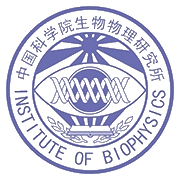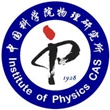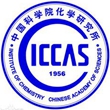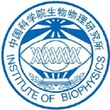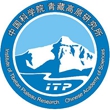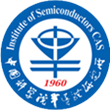Sessions 1:Mathematics and Physics
Y. Ron Shen

Character introduction
Experience of education and training
PhD, Harvard University, 1963
Postdoc, Harvard University, 1963-64
Positions
University of California, Berkeley
Assistant Professor, 1964-1967
Associate Professor, 1967-1970
Professor, 1970-2006
Professor of the Graduate School, 2006-Present
Research and achievements
Research interest is in the broad area of interaction of light with matter, covering a wide range from development of nonlinear optics and laser spectroscopy to optical studies of condensed matter physics, molecular physics, , liquid crystals, surface science, and nanoscience. Has been a prolific scientist and is the author of two books: “The Principles of Nonlinear Optics” and “Fundamentals of Sum-Frequency Spectroscopy”.
Honors received include elected member of US National Academy of Sciences (1995) and elected foreign member of the Chinese Academy of Sciences (1996).
PhD, Harvard University, 1963
Postdoc, Harvard University, 1963-64
Positions
University of California, Berkeley
Assistant Professor, 1964-1967
Associate Professor, 1967-1970
Professor, 1970-2006
Professor of the Graduate School, 2006-Present
Research and achievements
Research interest is in the broad area of interaction of light with matter, covering a wide range from development of nonlinear optics and laser spectroscopy to optical studies of condensed matter physics, molecular physics, , liquid crystals, surface science, and nanoscience. Has been a prolific scientist and is the author of two books: “The Principles of Nonlinear Optics” and “Fundamentals of Sum-Frequency Spectroscopy”.
Honors received include elected member of US National Academy of Sciences (1995) and elected foreign member of the Chinese Academy of Sciences (1996).
Topic: Water Science as an Impactful Research Area
Abstract This talk is to advocate impactful research in science, which is not judged by impact factors of journals but by actual influence on science and technology. It can be basic or applied, or better, both basic and applied. Problems in such research areas are likely to be complex so that few researchers are willing to engage themselves, interdisciplinary so that few researchers have sufficient expertise to face them, and not on the radar screens of high profile journals so that accomplishments may not be readily and widely recognized. However, success in such research areas could be highly influential to future science and technology and has better chance to benefit the mankind. By nature, these research areas are not well explored and should provide more opportunities for innovation and discovery.
I shall take water science as an example. Water is the most abundant liquid on earth and is intimately related to all aspects of our life. Yet it is most embarrassing that we still do not know water very well. It is often said that if we had command over interfacial water properties, we would easily eradicate the two major crises (water and energy) facing the world: through water filtering to acquire unlimited reusable clean water and through water splitting by sunlight to have inexhaustible energy. Searches for understanding of water interfaces, especially at the molecular level, have been hampered by lack of effective tools. In situ studies of water interfaces under realistic conditions are crucial for gaining essential knowledge to solve important relevant problems. For water science to advance in strides, collaborations of researchers with expertise in many disciplines are a must.
KEY WORDS: Impactful research, Water science, Water interfaces
I shall take water science as an example. Water is the most abundant liquid on earth and is intimately related to all aspects of our life. Yet it is most embarrassing that we still do not know water very well. It is often said that if we had command over interfacial water properties, we would easily eradicate the two major crises (water and energy) facing the world: through water filtering to acquire unlimited reusable clean water and through water splitting by sunlight to have inexhaustible energy. Searches for understanding of water interfaces, especially at the molecular level, have been hampered by lack of effective tools. In situ studies of water interfaces under realistic conditions are crucial for gaining essential knowledge to solve important relevant problems. For water science to advance in strides, collaborations of researchers with expertise in many disciplines are a must.
KEY WORDS: Impactful research, Water science, Water interfaces
Previous first_page
Next Wenlong Zhan

